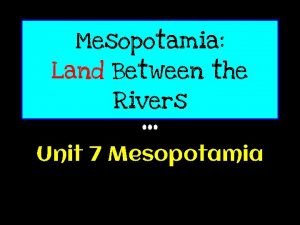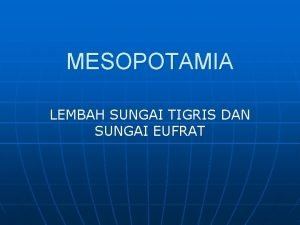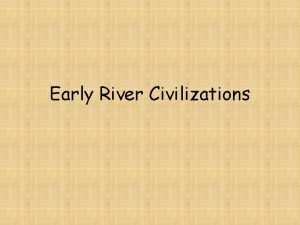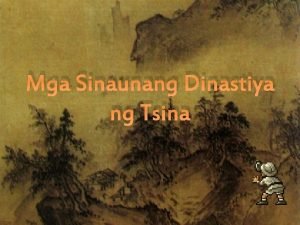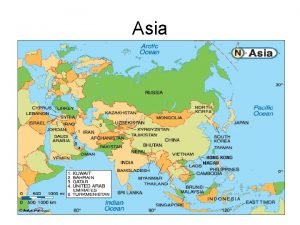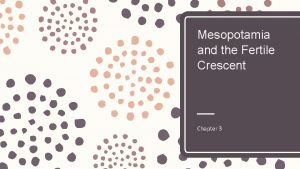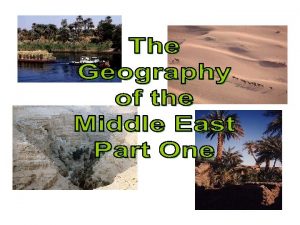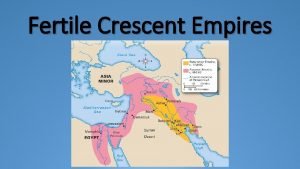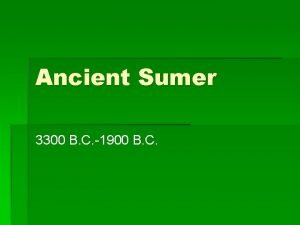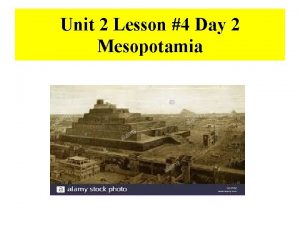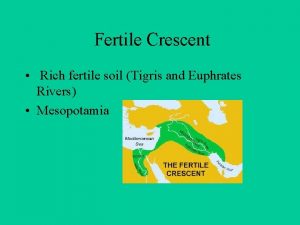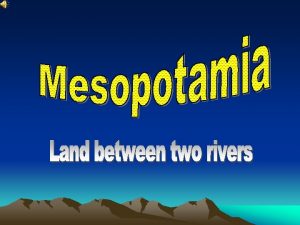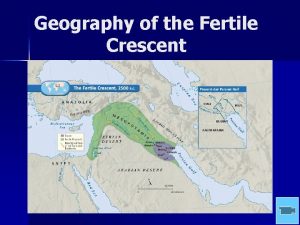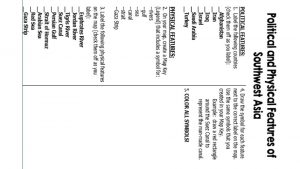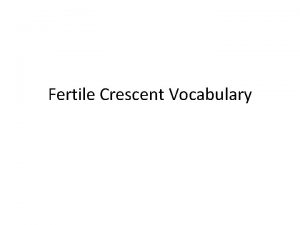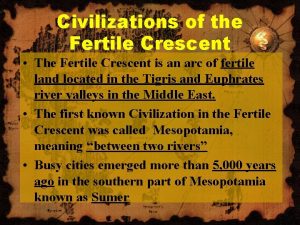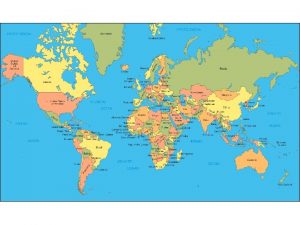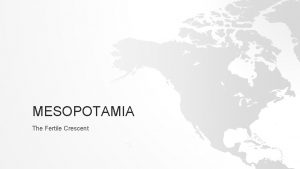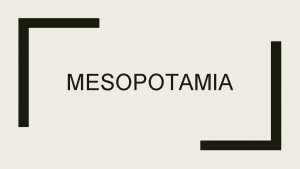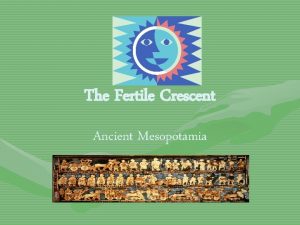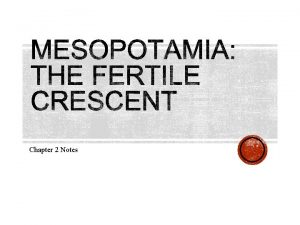The Fertile Crescent The Tigris Euphrates Rivers form














- Slides: 14

The Fertile Crescent • The Tigris & Euphrates Rivers form a vast watershed system the stretches from what is now Turkey through Syria and Iraq to the Persian Gulf. • In ancient times the people called this area Mesopotamia = The Fertile Crescent. • Throughout Mesopotamia, native cereal grains provided food for tribes of nomadic hunter-gatherers.

Early Civilizations • Throughout time the nomadic hunter-gatherers learned to cultivate these native grains in the rich soil. • They began to harness the water of the mighty rivers to increase their crop yields. • The nomads became farmers living in settle villages. • Ample food supplies led to the developed technologies and organized social structures. • These developments enriched their lives and ensured their survival. • The ancient farmers developed the first civilizations.

What is a Civilization? • To be considered a civilization, a society must posses five key elements: 1. 2. 3. 4. 5. Centralized Government Organized Religion Job Specialization and Social Classes Arts, Architecture, and Public Works Writing

The Rise of Sumer The Big Idea The Sumerians developed the first civilization in Mesopotamia

Key Terms • • • Rural- countryside areas Urban city areas City-state- a city and all the countryside around it Gilgamesh- one of Uruk’s kings became a legendary figure in Sumerian literature Sargon—first ruler to have a permanent army Empire- land with different territories and peoples under a single rule Polytheism- the worship of many gods Priests-people who performed religious ceremonies Social hierarchy- the division of society by rank or class

An Advanced Society The City-States of Sumer • Most people were farmers; • Urban areas were centers of Sumerian society • Some of Sumer’s cities had more than 100, 000 residents • City-states in Sumer fought each other to gain more farmland • They developed strong armies • Built strong walls around their cities for protection

Rise of the Akkadian Empire • Akkadians lived north of Sumer • Spoke a different language • Sargon built a new capital, Akkad, on Euphrates River (near present day Bagdad • First ruler to have a permanent army • Defeated all of the Sumerian city-state • First empire • Stretched from the Persian Gulf to the Mediterranean Sea • Sargon ruled for 50 years • Eventually, Sumer regained power, rebuilding city-state of Ur



Religion Shapes Society Sumerian Religion • Polytheism- worship of many gods • Some of their gods: • Enlil- the lord of the air • Enki- god of wisdom • Inanna- goddess of love and war • Utu & Nanna - sun & moon • Each city-state had one god considered to be its protector

Sumerian Social Order King Priest General Craftsmen

Working Class in the City Farmers Slaves

Men & Women Men Polical Power- made the laws Educated Women Home & Child raising Some upper-class Enheduanna- Sargon’s daughter- 1 st known female writer in history Wrote hymns to the goddesss, Inanna

The Rise of Sumer Government q Originally organized into city-states Religion q. Polytheistic q. Each city had a god as q Large empire created by protector Sargon q. Gods have enormous q First permanent army power Society q Kings q Priests q Skilled crafters, merchants, & traders q Laborer and farmers q. Priests interpret wishes of gods q Slaves q. Everyone must serve and worship gods
 Perfect location
Perfect location Kedalaman sungai eufrat
Kedalaman sungai eufrat Ancient civilizations of the old world map
Ancient civilizations of the old world map Dinastiyang manchu
Dinastiyang manchu Smallest continent
Smallest continent Tigris and euphrates river
Tigris and euphrates river Geography of the fertile crescent
Geography of the fertile crescent Geography of the fertile crescent
Geography of the fertile crescent Fertile crescent
Fertile crescent Fertile crescent ap human geography definition
Fertile crescent ap human geography definition Fertile crescent
Fertile crescent Fertile crescent
Fertile crescent Fertile crescent on world map
Fertile crescent on world map Agricultural hearths
Agricultural hearths Unit 2 lesson 4 fertile crescent
Unit 2 lesson 4 fertile crescent
